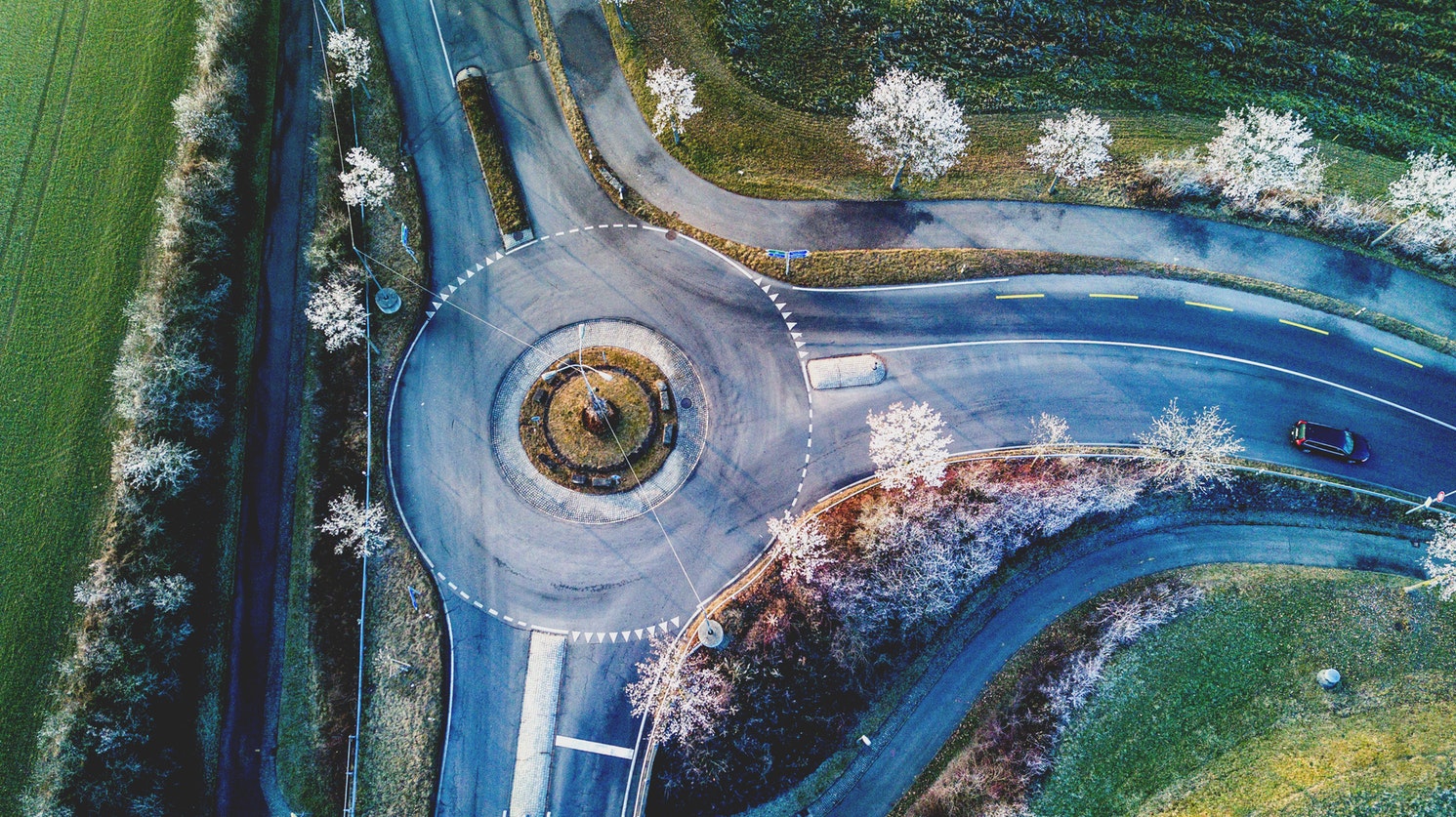Finding Unity on Busy Streets

Traffic surged in three lanes on either side of our small group as we huddled on the median strip of la calle Revolucion in Guadalajara, Mexico. Buses passed within inches of the curb—and our feet—and exhaust blasted us as we waited for the chance to finish our dash across the street.
Sometimes in the church we may feel as if we're caught in this kind of situation—in the middle of an emotional traffic onslaught. People move in different directions. Road signs, in the form of popular writers, pollsters, preachers, and others, call us to go this way and that. The resulting confusion and chaos tears the church apart, hurting people in the process.
On public streets, as long as a vehicle is in the appropriate lane, few drivers take personal offense when others travel in the opposite direction. But in the church, we assume that unity means we will all take the same road, in the same direction, at the same speed. When someone suggests taking a different route, we may be offended, feel rejected, pout because we don't get our way, or even question their spirituality because they disagree with us.
The church has been at the center of my life since I was a child. Over the years I have often felt torn by conflicting voices. On Sunday morning a dear friend says, "I miss the way things used to be around here. I'm thinking about looking for another church that will meet my needs." Then on Tuesday another friend bemoans, "The church is so out of touch with today's world. We have to change if we're going to reach people in our community."
Some congregations split over such differences of opinion. Other congregations try to program specialized worship services, ministries, and activities to meet everyone's preferences. However, this often results in chaos or compartmentalization.
How can we as a church address differing views on worship and our mission without threatening division? How can we as individuals remain steady amid conflicting voices?
Several principles have helped me in this process:
- I have learned that unity does not mean uniformity. God created us uniquely, with different gifts, abilities, personalities, and preferences. Because of our differences, conflicts will arise, yet God calls us to "Make every effort to keep the unity of the Spirit through the bond of peace" (Ephesians 4:3). Our human tendency is to let differences divide us. But God's love helps us face and work through conflicts with grace and oneness.
When we disagree with fellow believers, we do well to remember our identity. We are brothers and sisters in Christ. All parties involved in a disagreement are created in God's image. Grace can help us see one another as God sees us.
We also do well to recognize our motives. All people serving Christ have the same ultimate motive: to serve the living God in our lives and in the church.
- To understand our shared identity and motive, we must listen to each other. As a church family, we can learn a lot if we will ask those who miss the "good old days" what was good about them. We need to listen to the stories, looking for the values and the strengths of the past. Most likely, those values and strengths still exist, though perhaps in different forms, waiting to be shaped and used in the future.
We also can learn by looking at what drives those who press for change. What do they value? What do they see as the church's mission? In the church, people on different sides of a conflict often have the same goals and values, but have varied ideas about how to reach those goals and live out their values. By talking together, we can focus on the issues instead of personal attacks, and we can work together based on what we have in common rather than focusing on our differences.
- I have also learned that the "middle of the road" is not a bad place to be. Although on la calle Revolucion traffic seemed to come at me from all sides, when I took my eyes off the cars and buses and looked around, I enjoyed a great view in all directions. My position offered perspective, and traffic patterns even made more sense.
Could it be that from the middle of the road in the church I can provide perspective from the past and into the future? I can initiate conversations between those who disagree. Perhaps I can help those who long for the good old days to view change with a spark of imagination and see their roles in what "might be" in the future. At the same time, maybe I can help the revolutionary to see the value of tradition and history and learn from it. I can't reach both directions of traffic from either sidewalk, but the middle of the road offers a great vantage point.
The hymn writer reminds us that "God our help in ages past" is also "our hope for years to come." As we remember and value what God has done in the past, may we also covenant to work together into the future as the family of God, united in God's love and grace.
Judi Schwanz is Professor of Pastoral Care and Counseling at Nazarene Theological Seminary.
Holiness Today, January/February 2006
Please note: This article was originally published in 2006. All facts, figures, and titles were accurate to the best of our knowledge at that time but may have since changed.




